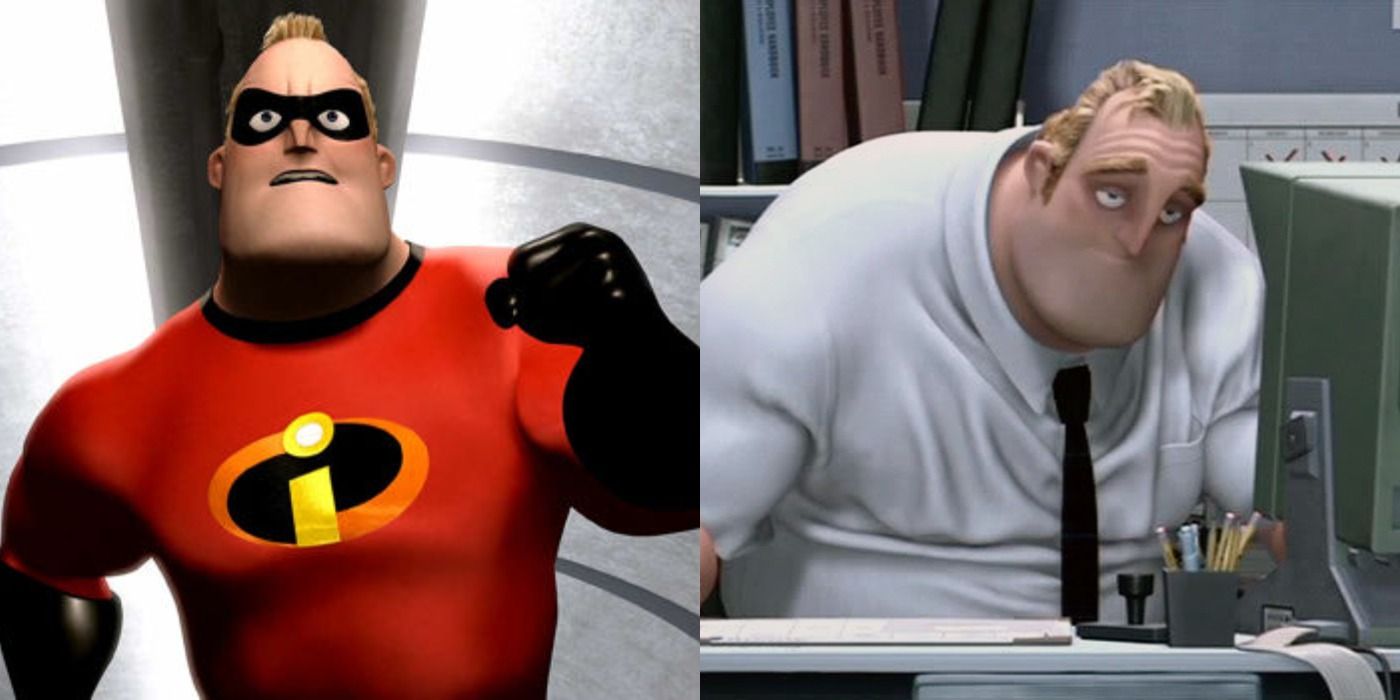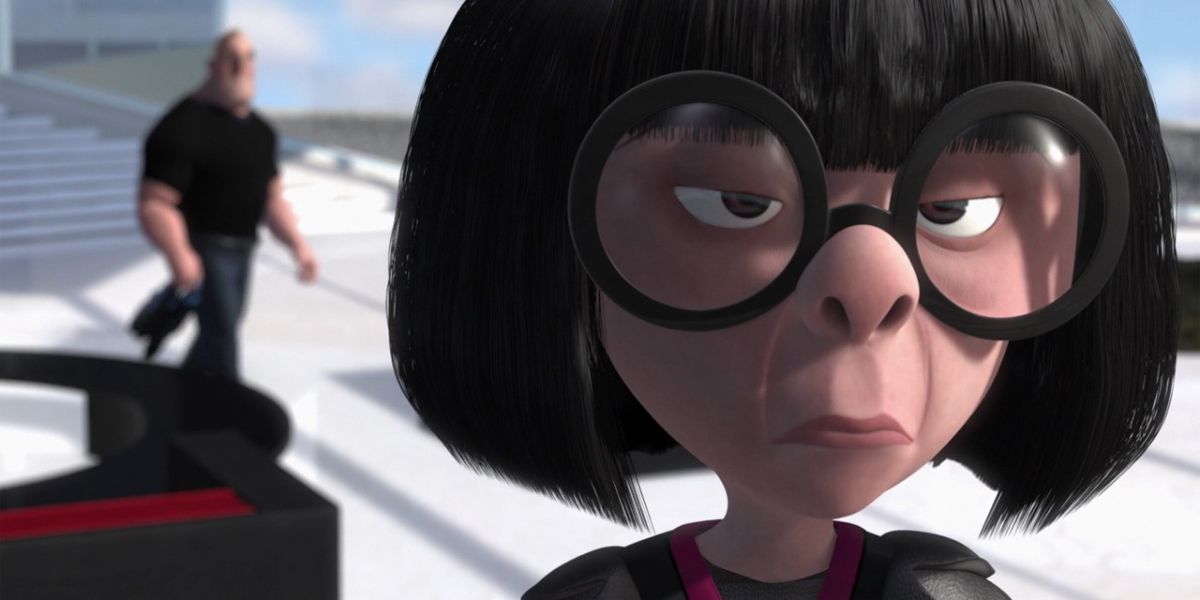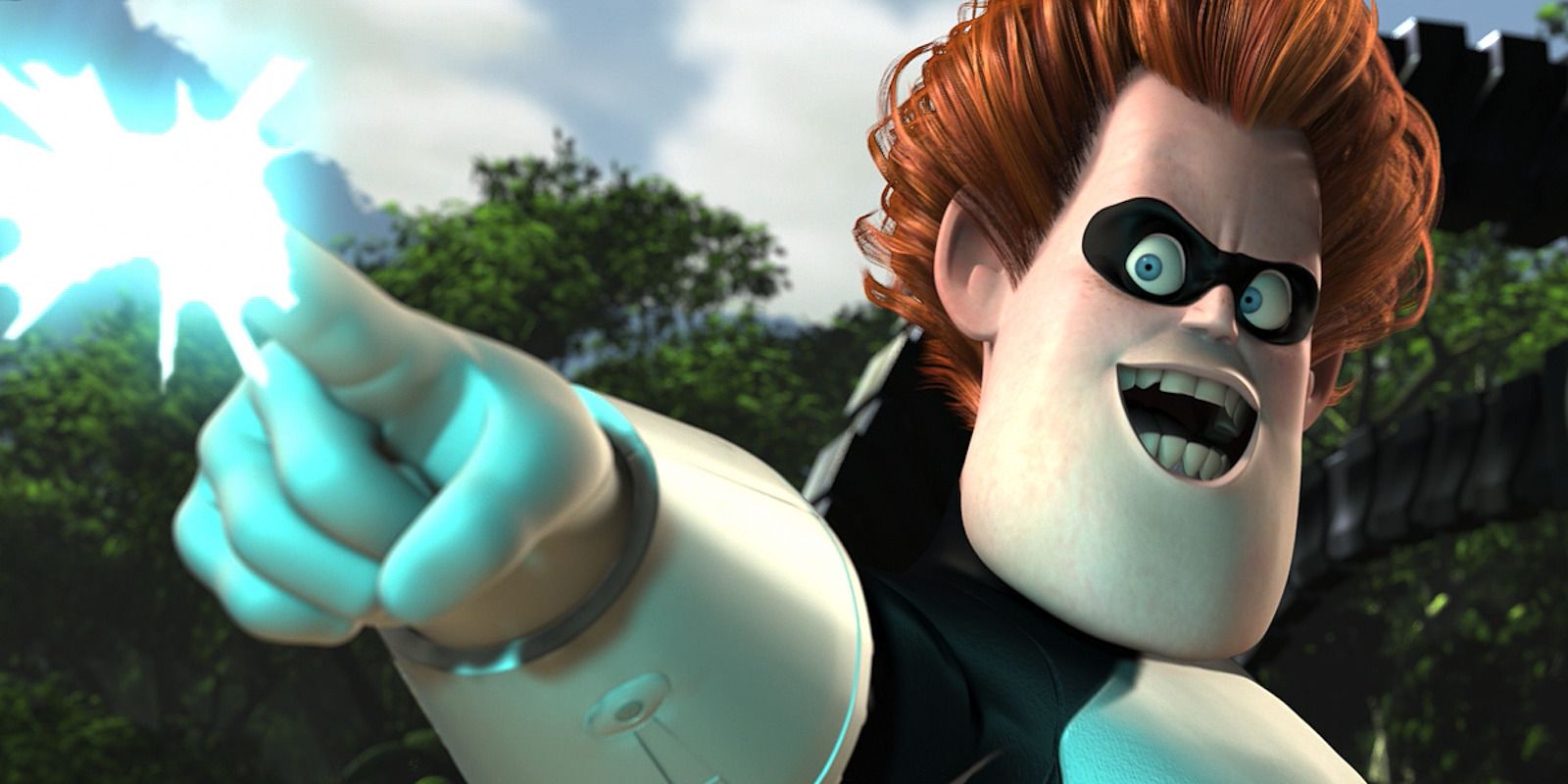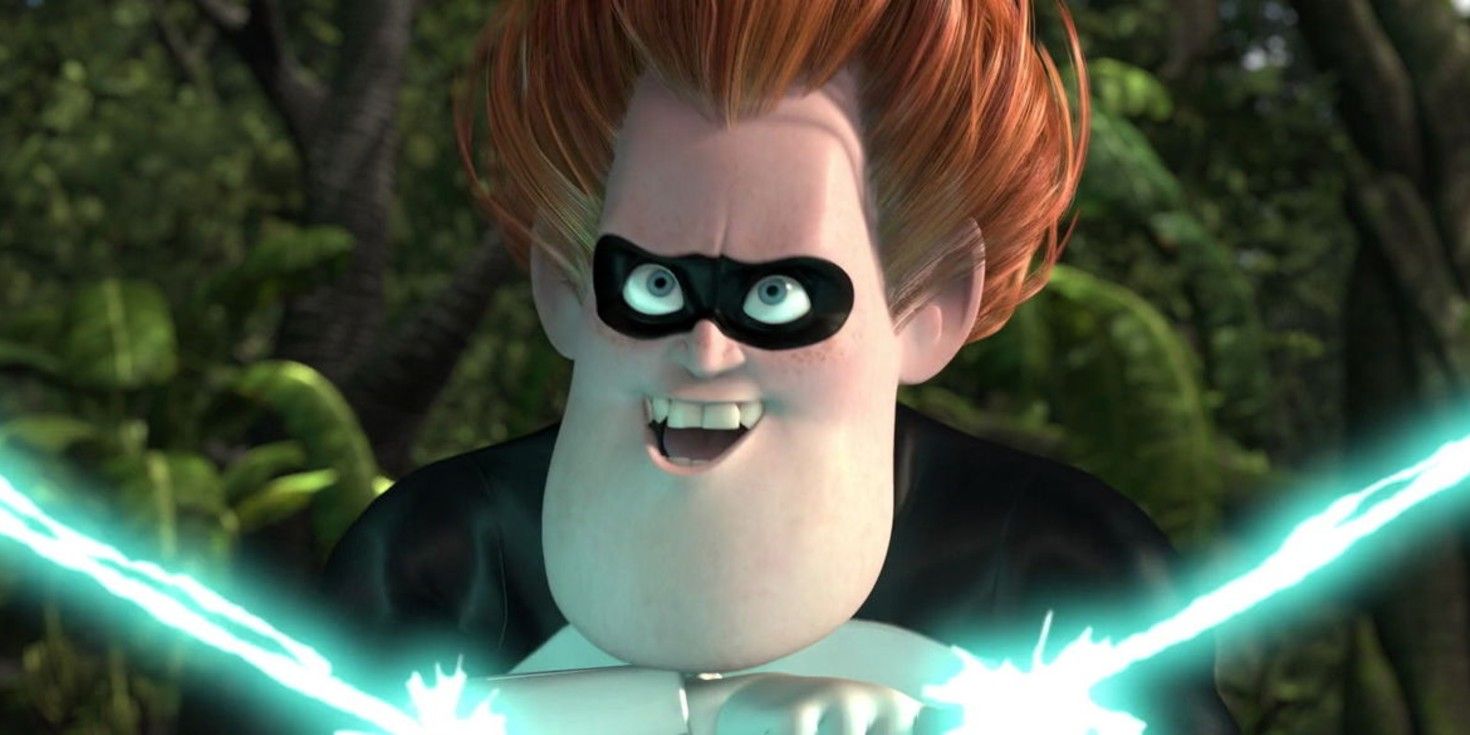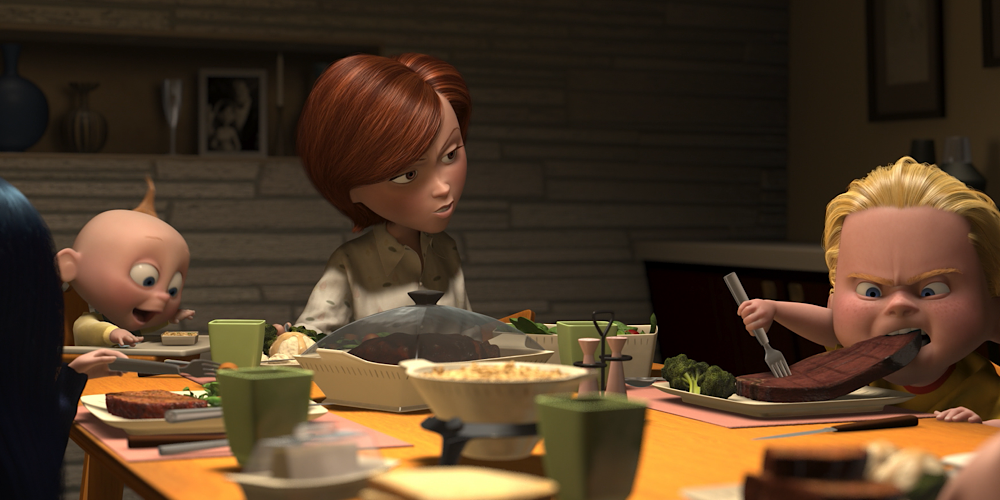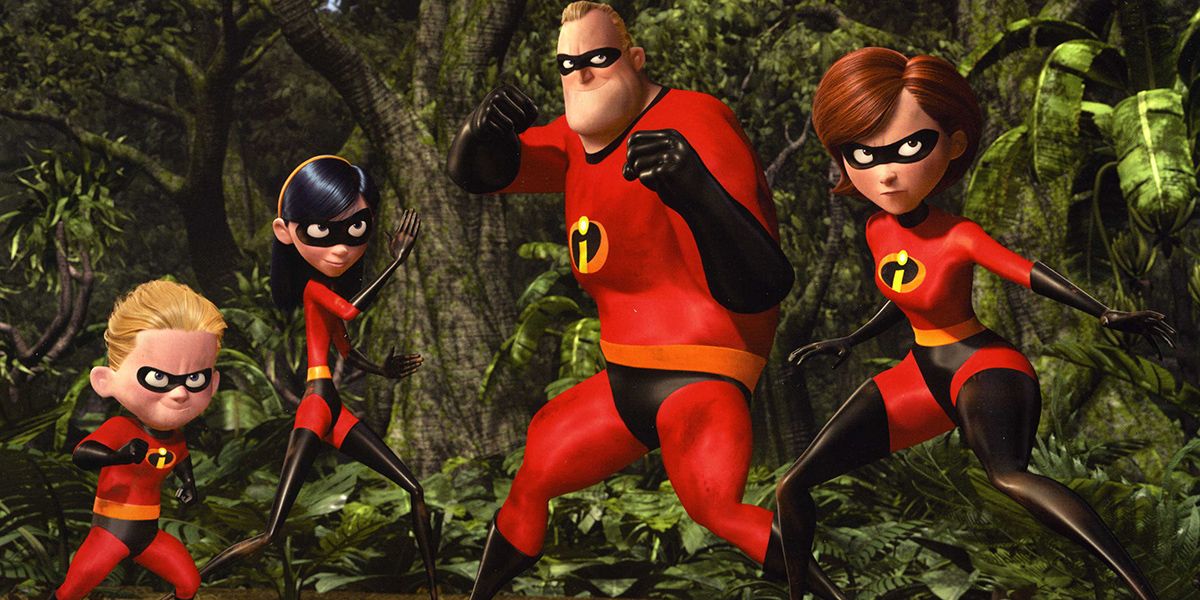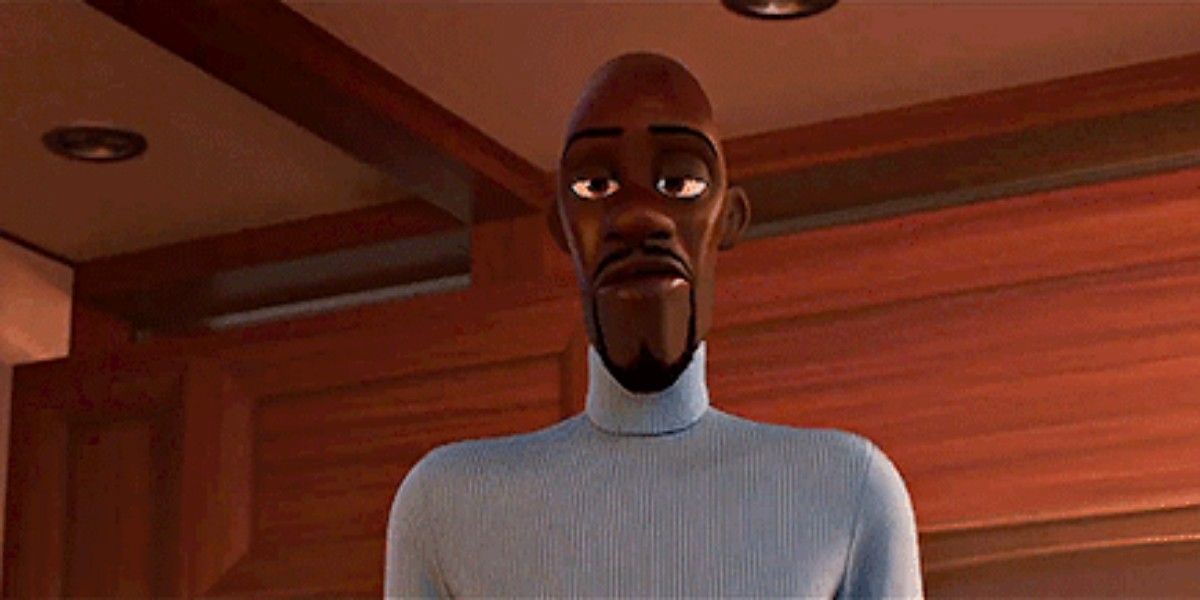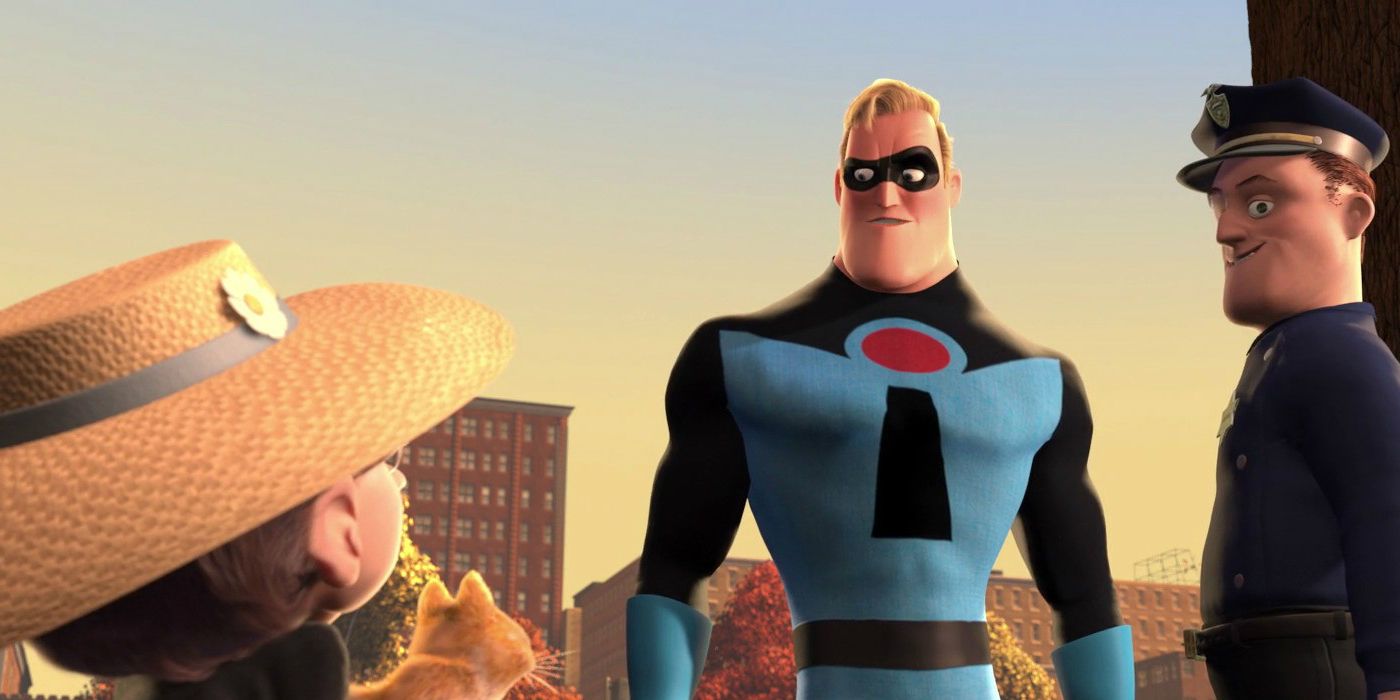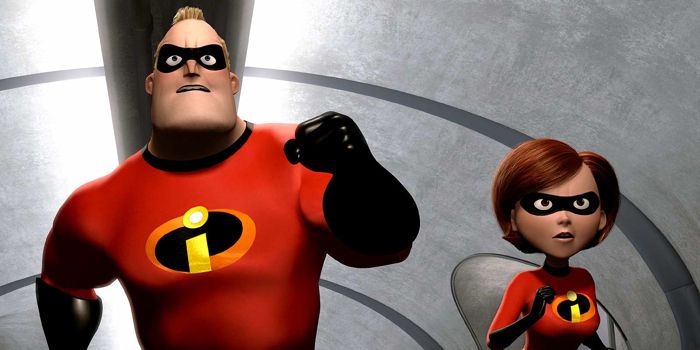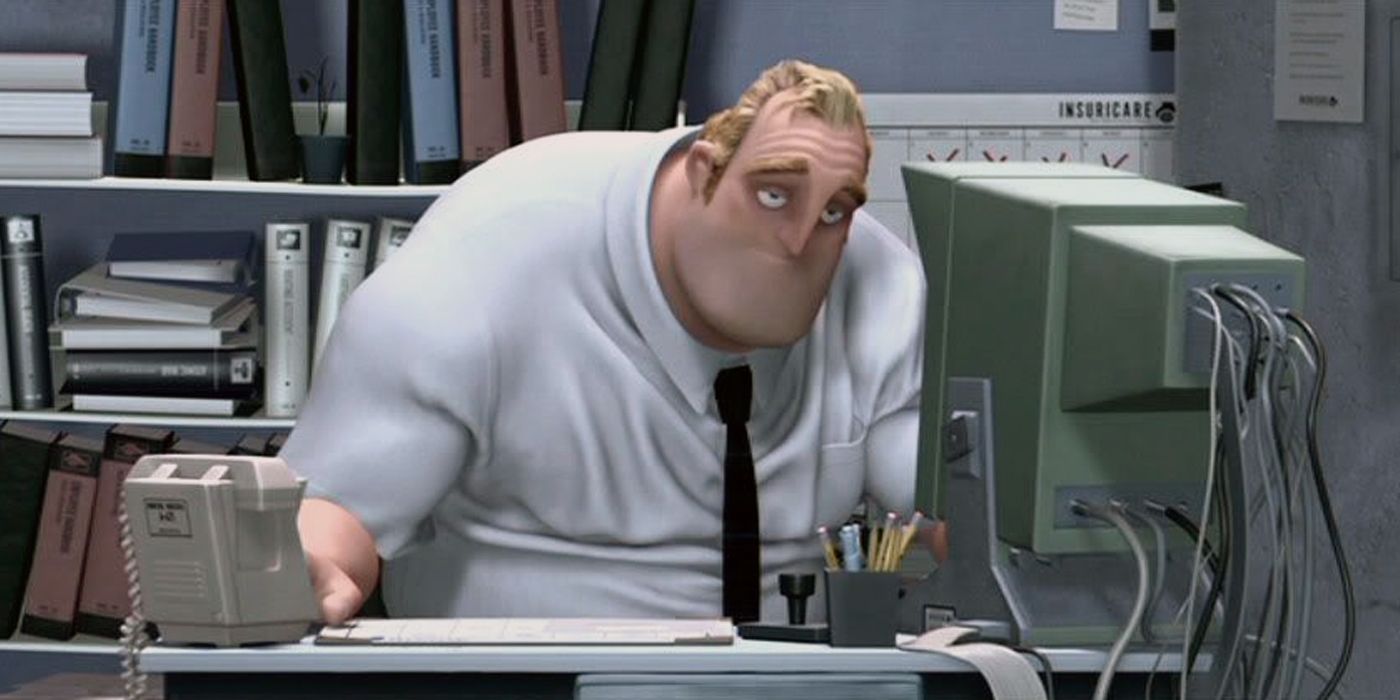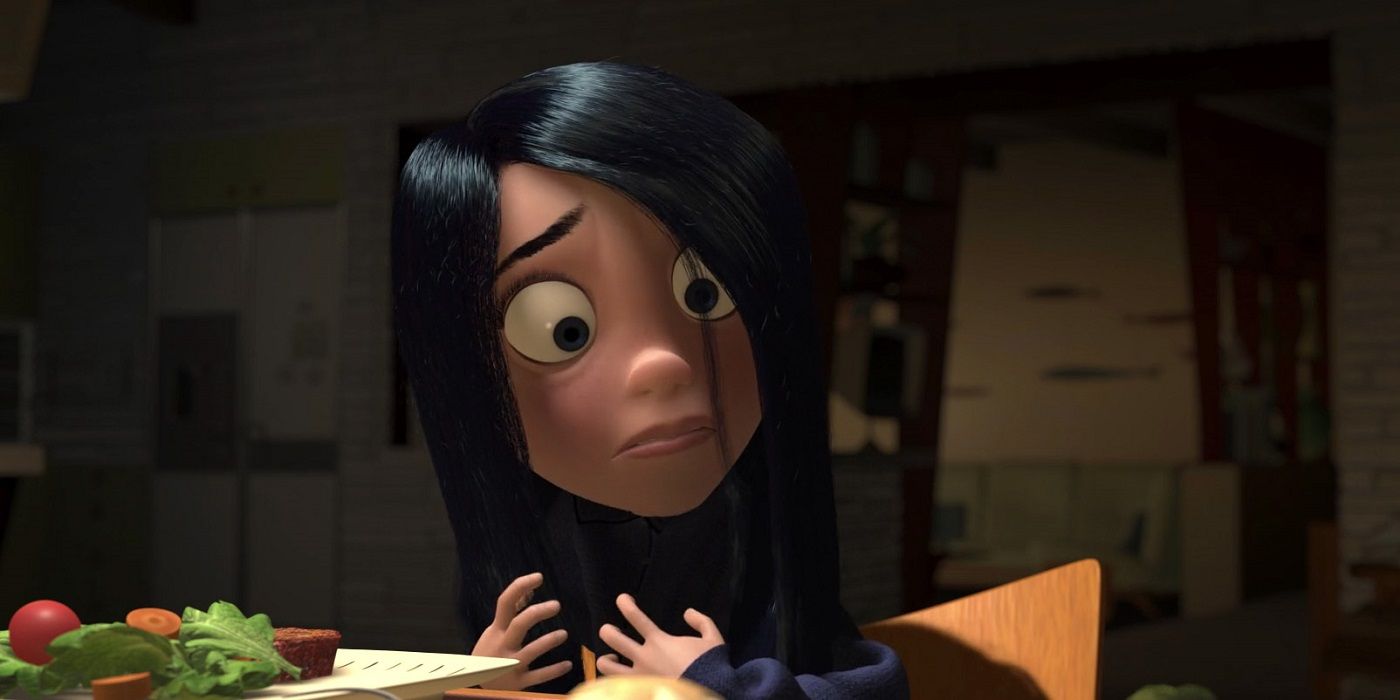When it debuted in 2004, Disney and Pixar's The Incredibles was simultaneously a throwback nostalgic superhero film and a radical reinvention of the superhero movie genre. The movie uses a humorous yet thoughtful approach to its story in order to examine and comment on the conventions and tropes of the superhero genre.
However, the film was not just a meta-commentary on the superhero genre, as it was also a fresh and original entry in the genre that catered towards the entire family. As such, The Incredibles is both a reflection on the history of the superhero genre and the model for what it would become in the years that followed.
Deconstructed It: Super Suits
Arguably Pixar's best side character, Edna Mode has a simple rule for her superhero costume designs, "no capes." She has seen far too many heroes die as a result of impractical costume choices.
While superheroes are frequently associated with capes, they serve no practical or functional purpose in most instances. As cool as Superman or Thor may look with their cape billowing in the wind, there is no purpose for the cape. The Incredibles called out the trend of superhero costumes valuing aesthetics over functionality.
Saved It: Sympathetic Villain
While there have been some great sympathetic villains in the MCU, the concept of a sympathetic villain was far less common when The Incredibles was released. Syndrome is one of the first major supervillains who wanted to be a hero but ended up a villain.
The story convention has become the norm, with audiences expecting the villains to have sympathetic origins rather than just being cartoonish embodiments of evil. Characters such as Thanos, Killmonger, and Two-Face begin with noble intentions but fall into villainy along the way, the same way that Buddy began wanting to be a hero but became Syndrome.
Deconstructed It: The Nature Of Powers
Because the villainous Syndrome has lived his entire life wishing he was special like Mr. Incredible, his plan is to give everyone superpowers because "if everyone is special, no one is." The Incredibles ultimately disprove this concept as their virtue and selflessness are juxtaposed with Syndrome's arrogance and selfishness.
This aspect of the film causes the audience to reflect on what makes a superhero a superhero. The viewer must wrestle with the question of whether The Incredibles are special because of their abilities or because of their strength of character. Despite both having abilities, it is how The Incredibles use their powers to help others that makes them different.
Saved It: Blended Genres
For many years superhero movies existed firmly within their own genre. Recently, because of the abundance of superhero movies, superhero films have started to branch out into other genres, mixing in elements of spy thrillers, heist films, Westerns, and other genres.
In some ways, The Incredibles helped to introduce this trend by taking a traditional superhero story and blending it with a family drama. The film proved that superhero movies did not need to just be superhero movies but instead these characters could be used to tell all kinds of stories.
Deconstructed It: The Dynamic Of Super Teams
The Incredibles are clearly inspired by Marvel's Fantastic Four. While many superhero teams such as the X-Men or the Avengers often become like a family, bringing together loners who have never fit in and giving them a home, The Incredibles actually are a family.
This is a clever way to put an original spin on the super team while also deconstructing and examining the dynamics of a team. When they fight, makeup, fail, or succeed, it just means more to each of them because they are bonded together as a family.
Saved It: Gave Disney Experience
Up until the release of The Incredibles, Disney had very limited experience in the superhero genre. Their closest big-budget attempts were probably The Rocketeer and Inspector Gadget, neither of which were major box office successes. However, the success of The Incredibles proved that Disney was capable of producing a family-friendly, character-driven hit superhero movie.
Several years after this, Disney made the historic decision to buy Marvel Entertainment and take control of the MCU. In Many ways, the MCU has shaped modern cinema by driving the rise of blockbusters and connected universes. But before buying the MCU and changing the superhero genre forever, Disney proved to themselves and the world that they could handle the genre with The Incredibles.
Deconstructed It: Heroes Acting Autonomously
For several decades of superhero movies, the hero was largely unquestioned and allowed to be above the law. In some cases, such as the Batman movies, the police come to the hero with their problems and trust him to fix them. But The Incredibles subverts this expectation in the opening sequence and shows the law trying to take jurisdiction over the superheroes, cleverly using Watchmen as the inspiration for a kids' movie.
Many of the biggest superhero movies since The Incredibles have dealt with this same concept by asking whether or not superheroes have the right to act autonomously or if they need to be accountable to some governing body. Films such as The Dark Knight, Captain America: Civil War, and Batman v Superman all grapple with this very topic.
Saved It: Not Tied To Marvel Or DC
Because Marvel and DC have dominated the superhero comic book genre for decades, many of the big superhero films are adaptations of Marvel or DC characters. However, as a great original superhero movie, The Incredibles proved that the superhero genre could thrive beyond just Marvel and DC.
While Marvel and DC are still major players, there have been many more successful superhero films and shows that are not based on Marvel or DC comics in recent years such as Invincible, The Boys, Kick-Ass, and Chronicle. The Incredibles helped show that mainstream audiences could accept superhero movies that were not based on Marvel or DC properties.
Deconstructed It: The Need To Be Incredible
While there have been superhero movies, such as Superman II and Spider-Man 2, that deal with the hero deciding to walk away from being a hero, The Incredibles reinvents this trope by looking at a world where the heroes have been stripped of their identities by against their will.
Clark Kent must hide his true identity to fit in in an office, but Mr. Incredible is forced to accept that his office persona is his only identity. The result is a fascinating and relatable look at people moving into their middle age who are forced to redefine themselves and discover who they are outside of the thing that has always been their source of identity.
Saved It: Introduced The Genre To A New Generation
In the early 2000s, many of the most successful superhero films, mainly the X-Men and Spider-man movies, were aimed at an older audience. But The Incredibles was geared towards the entire family, carrying just a PG rating so that kids of all ages could watch it.
The generation that were kids when The Incredibles came out in 2004 are now the young adults who continue to drive the success of the MCU. The Incredibles exposed a whole generation of kids to the superhero genre and helped them fall in love with superhero movies, contributing to the genre's long-term health.

